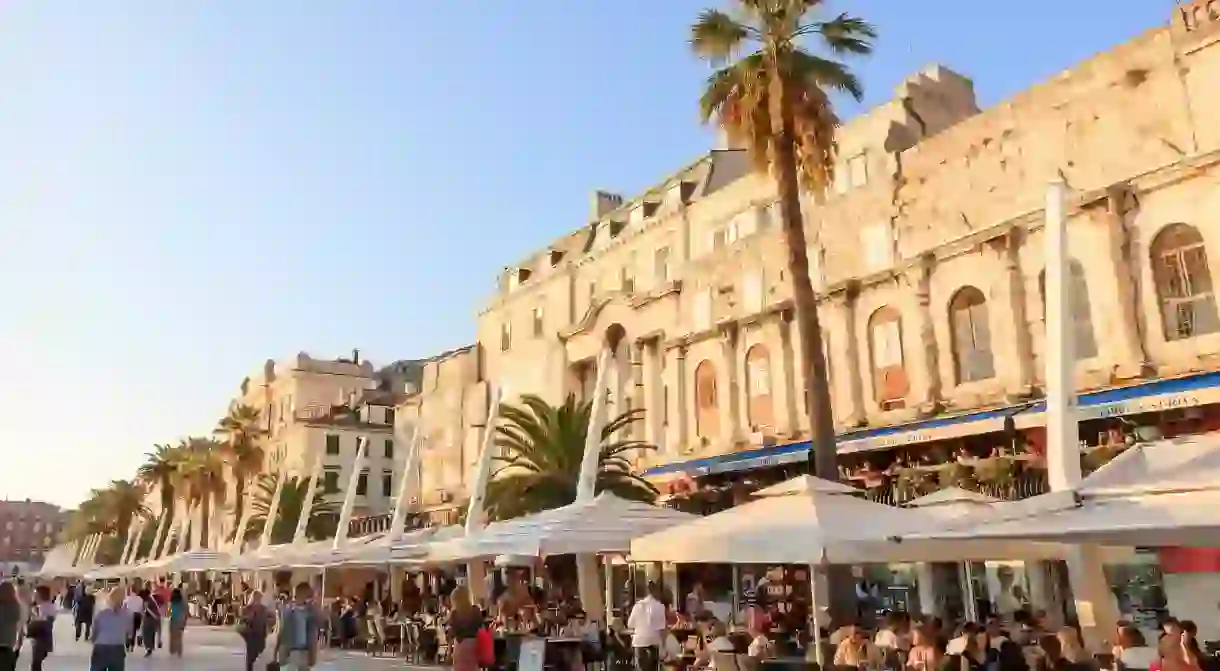11 Habits You Pick Up Living in Croatia

For all the laid-back vibe of the coast in summer, Croatia is essentially a Balkan culture. Locals are direct to the point of blunt, smoke like beagles and offer kisses on the cheek or extremely firm handshakes when greeting. All these habits rub off on the residential foreigner, who’ll return home at some point a tactile, chain-smoking convert.
Sugar in coffee
Thanks to mass tourism, in cafés around Croatia, sugar is provided in little sachets, either on the table or in the saucer. But for any local, drinking unsugared coffee is simply unthinkable. Therefore, if you’re invited round to someone’s flat, they will sweeten your drink unless you have the temerity to say otherwise. They then will look at you strangely when your bizarre no-sugar stance is flagged up, as if you’ve asked for coffee with a dash of mustard. Go with it. Pour the sugar in. What’s a few teeth between friends?

Main meal at lunch
Although the culture is changing, particularly in Zagreb, the main meal of the day is lunch. Even with more and more people tied to a nine-to-five lifestyle, a simple sandwich just won’t do. Many restaurants offer lunchtime deals, and you can still find the once ubiquitous gableci, cheap local dishes offered to hungry workers who started the day at 8am or earlier with just a coffee and cigarette. In Dalmatia, these late morning/early lunchtime meals are called marende, generally lighter than the bean soup or breaded meats served in Zagreb, but still the full complement of fish or meat, rice or potatoes, and salad. Substantial evening meals, on the whole, are for tourists.

Carry ID
Those arriving from the UK come from a culture without ID cards or the need for a passport unless foreign travel requires it. Here in Croatia, everyone carries their own osobna iskaznica, an ID card compulsory for everyone over the age of 16. Tourists staying at hotels need not worry about bureaucracy or expect to be checked if hanging around any holiday resort. Otherwise, carrying ID is probably a good idea. US and Canadian citizens staying in Croatia for three months or more need to arrange registration.
Driving on the right
This is continental Europe — everyone drives on the right. This wasn’t the case when driving was first introduced in Croatia, as it was only from the 1920s that areas once under Habsburg rule switched from left-hand to right-hand driving. Knowing the rules of the road here is essential if you’re going to tackle the notorious Magistrala, the Adriatic highway that runs down the coast of Dalmatia, with scant delineation between oncoming lanes of traffic.

Kissing when greeting
No half-hearted fumbles or embarrassing gestures left in the air here. Croatian friends greet each other with kisses, left cheek first, then right. It may often be accompanied with a kind handshake as well. Strangers and business acquaintances offer each other firm handshakes, the grip turned down a notch or two if it’s a man-woman rendezvous.
The man always pays
Here, the rules of social engagement are very clear. The man pays. It’s not in the least rude for a woman not to even make the slightest attempt at a gesture to contribute once the restaurant or café bill comes — it’s the man who has to dig out his wallet and come up with the hard-earned kuna.

Smoking
Everyone smokes. Worse, everyone smokes in bars, although there’s some long drawn-out and entirely fruitless attempts to ban smoking in public places. Go out for a few beers in Zagreb, and you’ll come back smelling like an ashtray. In restaurants, smoking is less common, except on terraces. Lifelong non-smokers will simply have to go with the flow, light up and be sociable.
Spend hours in cafés
Once a local sits down at a café table, that table is his or hers until such time as he or she deigns to leave it. The visit could last 15 minutes, or it could last an entire afternoon. In fact, in locations such as the terrace cafés that line the main promenade in Split, the Riva, spending hours over a single coffee is pretty much the done thing, meeting and greeting any friends who pass by.

Unpick shellfish
Any self-respecting Croat can unshell scampi in a matter of nanoseconds. Without a childhood spent devouring fish fingers in breadcrumbs, Croatians learn at their mother’s knee how this is done, before moving on to the intermediate stage of doing this while holding conversation and smoking at the same time. De-boning fish, too, is done in the blink of an eye, a technique worth observing, learning and taking with you after you leave Croatia.

Avoid certain topics
Assuming the conversation is in English, most of your social interaction will be polite, with a little gentle humour thrown in for good measure. But politics and local history here are topics to be avoided, and the foreigner will get used to skating around the subject and not engaging in casual banter where least wanted. Bitter conflict here is still a relatively recent memory, and attitudes may differ radically, depending on which part of Croatia you happen to be in.
Eye contact
If you’re talking with someone, saying hello or even just asking directions, eye contact is important. Greeting someone and looking askance is a complete no-no. This is particularly important when it comes to clinking glasses, which you must do while looking your clinking partner in the eye. Anything else is suspicious or worse, downright rude.














